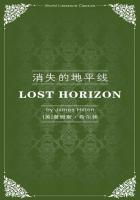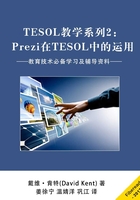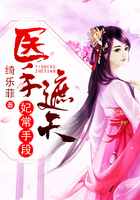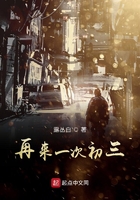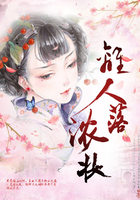The past ages of man have all been carefully labeled by anthropologists. Descriptions like “Paleolithic Man”. “Neolithic Man”, etc, neatly sum up whole periods. When the time comes for anthropologists to turn their attention to the twentieth century, they will surely choose the label “Legless Man”. Histories of the time will go something like this: “In the twentieth century, people forgot how to use their legs. Men and women moved about in cars, buses and trains from a very early age. There were lifts and escalators in all large building to prevent people from walking. This situation was forced upon earth-dwellers of that time because of their extraordinary way of life. In those days, people thought nothing of traveling hundreds of miles each day. But the surprising thing is that they didn’t use their legs even when they went on holiday. They built cable railways, ski-lifts and roads to the top of every huge mountain. All the beauty spots on earth were marred by the presence of large car parks.”
The future history books might also record that we were deprived of the use of our eyes. In our hurry to get from one place to another, we failed to see anything on the way. Air travel gives you a bird’s-eye view of the world or even less if the wing of the aircraft happens to get in your way. When you travel by car or train a blurred image of the countryside constantly smears the windows. Car drivers, in particular, are forever obsessed with the urge to go on and on: they never want to stop. Is it the lure of the great motorways, or what? And as for sea travel, it hardly deserves mention. It is perfectly summed up in the words of the old song: “I joined the navy to see the world, and what did I see? I saw the sea.” The typical twentieth century traveler is the man who always says “I’ve been there.” You mention the remotest, most evocative place-names in the world like El Dorado, Kabul, Irkutsk and someone is bound to say “I’ve been there” meaning, “I drove through it at 100 miles an hour on the way to somewhere else.”
When you travel at high speeds, the present means nothing: you live mainly in the future because you spend most of your time looking forward to arriving at some other place. But actual arrival, when it is achieved, is meaningless. You want to move on again. By traveling like this, you suspend all experience; the present ceased to be a reality: you might just as well be dead. The traveler on foot, on the other hand, lives constantly in the present. For him traveling and arriving are one and the same thing: he arrives somewhere with every step he makes. He experiences the present moment with his eyes, his ears and the whole of his body. At the end of his journey he feels a delicious physical weariness. He knows that sound, satisfying sleep will be his: the just reward of all true travelers.
人类学家小心翼翼地将人类以往的每一个时代都贴上标签。例如,“旧石器时代人”、“新石器时代人”等说法就简洁地概括了一个个完整的时代。当人类学家把他们的目光投向20世纪的时候,他们肯定会选择“无腿人”这个标签。这段时期的历史大致会这样记载:“在20世纪,人类忘记了如何使用他们的腿。男子和女子从很小的时候起就坐在小汽车、公共汽车和火车里来来去去。所有的高层建筑里都装有电梯和自动扶梯,以避免人们步行。这种状况强加在这个时期地球居民的身上,是由于他们非同寻常的生活方式。那时,人们没有想到每天旅行几百英里这类事情。但是,令人惊奇的是,他们即使去度假也不用他们的腿。他们建造缆索铁路,滑雪索道和道路通向每座大山的顶峰。地球上所有的风景区都被大型停车场糟蹋了。”
未来的历史书还会记载说,我们的眼睛也弃置不用了。在急急忙忙从一个地方赶往另一个地方的路上,我们什么都没看到。航空旅行可以使你鸟瞰世界——要是机翼恰好挡住了你的视线,你就看得更少了。当你乘汽车或火车旅行的时候,模糊不清的乡村景象不停地映在车窗玻璃上。尤其是汽车司机,他们的头脑永远都被“向前,向前”的冲动占据着:他们从来都不要停下来。到底是由于漂亮车道的诱惑,还是别的什么?至于海上旅行,简直不值一提。有一首老歌的歌词对海上旅行是一个完美的概括:“加入海军去看世界,我看到了什么?我看见了大海。”最典型的四世纪旅行者总是说“我已经去过那儿了”。你提到世界上最遥远、最引人遇思的地名,比如埃尔多拉多、喀布尔、伊尔库茨克,准有人说“我去过那儿”——意思是:“我在去另外一个地方的路上,以100英里的时速路过那儿。”
当你以很高的速度旅行时,“现在”就什么都不是:你主要生活在未来,因为你多半时间在盼望赶到别的一个地方去。但是当你真的到达了目的地,你的到达也没有什么意义。你还要继续前行。像这样子旅行,你什么也没有经历;你的现在并不是现实:跟死亡没有什么两样。另一方面,徒步旅行者却总是生活在现在。对他来说,旅行和到达是同一件事情:他是一步一步走着来到某地的。他在用自己的眼睛、耳朵和整个身体体验现在。在他旅途的终点,他感到一种愉悦的生理疲惫。他知道他会享受深沉而甜蜜的睡眠:这是对一切真正旅行者的酬报。
Perfect Life完美人生
To have striven, to have made the effort, to have been true to certain ideals—this alone is worth the struggle.
There can be no friendship where there is no freedom. Friendship loves a free air, and will not be fenced up in straight and narrow enclosure.
Rebellion to tyrants is obedience to God.
Patience and diligence, like faith, remove mountains.
Method goes far to prevent trouble in business: for it makes the task easy, hinders confusion, saves abundance of time, and instructs those that have business depending, both what to do and what to hope.
Justice is the insurance which we have on our lives and property. Obedience is the premium which we pay for it.
If there is any kindness I can show, or any good thing I can do to any fellow being, let me do it now, and not deter or neglect it, as I shall not pass this way again.
Death it but crossing the world, as friends do the seas; they live in one another still.
坚信过,尝试过,为自己确定的理想努力过——就不枉此番奋斗!
没有自由就没有友谊。友谊需要自由,不只是限定在狭小的圈子里。
我们要对上帝臣服,更要对独裁者反抗。
如同信念一样,忍耐和勤奋同样可以金石为开。
好的方法不仅仅能减少麻烦,它能将事情变的容易,它能扫清疑惑,它能节省时间,它能教导那些有想法的人,告诉他们如何去寄予希望,如何去实施。
公平是我们财富及生活的保险,忠实及顺从则是我们所付的保险费。
如果我有机会表达我的善心,展示我的善举,我会马上实施,不带任何的迟疑,因为我以后可能再也没有这样的机会了。
死亡仅仅是世界的穿梭,如同朋友穿越海洋一样;他们在另外的世界里依然永存。



